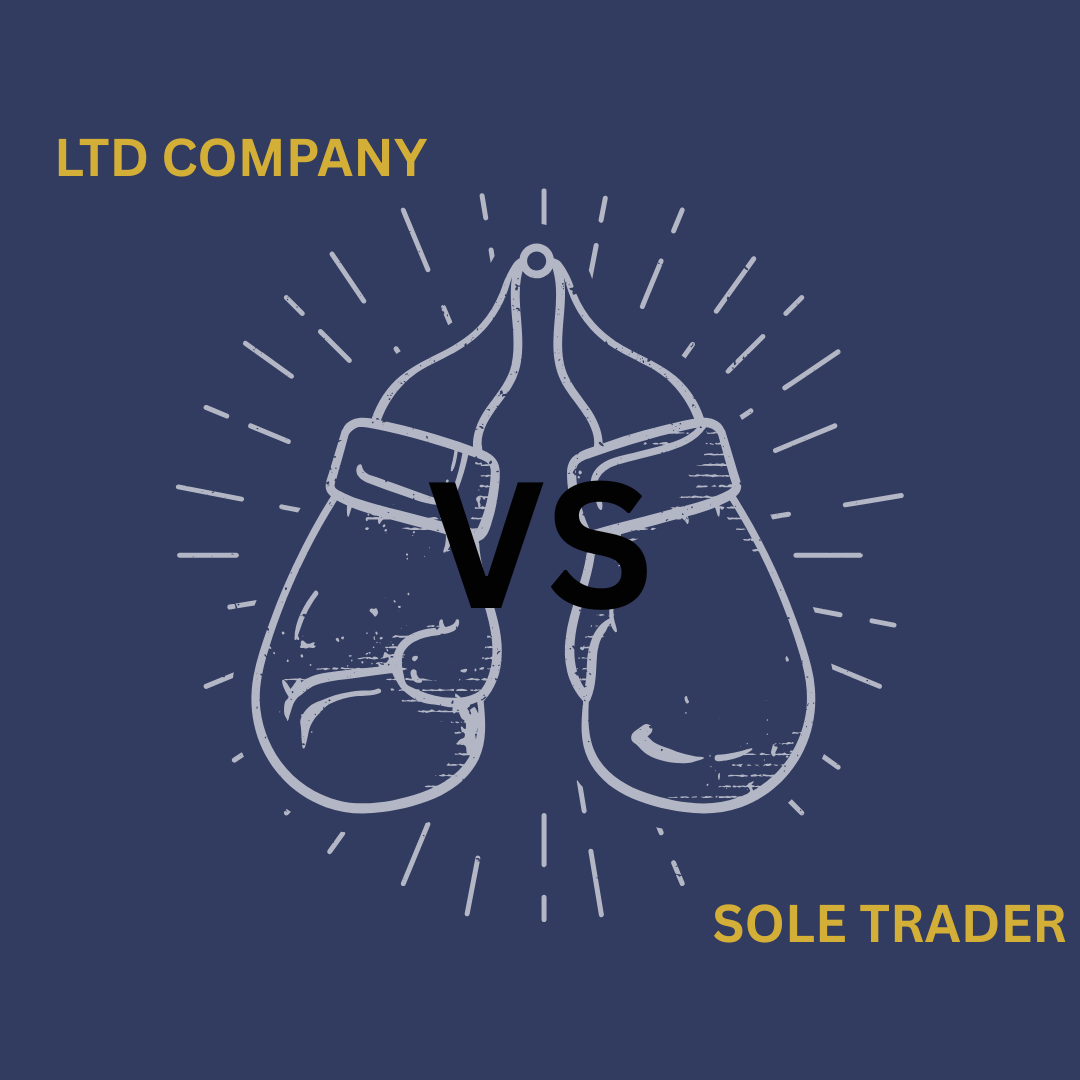Choosing a business structure is one of the most important decisions a business owner needs to make, but it can be difficult to understand your options. We have outlined just some of the advantages and disadvantages of being either a Sole Trader or running a Limited Company.
ADVANTAGES OF BEING A SOLE TRADER.
Start immediately: There is no requirement to register with Companies House so you can setup and start your business whenever you want too.
- Very little paperwork: You need to submit a self-assessment and with Making Tax Digital you will keep digital records and complete quarterly returns with an annual submission.
- Control over your business: You are the only one in the business so you can make all the decisions.
- Keep everything: You run your business as an individual and retain all the profits that you make after you’ve paid tax.
- More privacy: Your financial information remains private, unlike that of limited companies which is accessible by anyone via Companies House.
DISADVANTAGES OF BEING A SOLE TRADER.
Unlimited liability: You take on all the risks associated with running a business and you hold all the responsibility for its debts.
- Limited funding opportunities: Raising business finance can be difficult as lenders and investors tend to favour limited companies.
- Less tax efficient: Sole traders pay 20-45% income tax, compared to limited company owners who pay 19% corporation tax. Sole traders are taxed on the profits or losses of the sole trade personally, regardless of what profits they physically withdraw from their business bank account.
- Less credibility: Some organisations choose to not work with sole traders due to the lack of legal protection compared to limited companies.
- No protection over your business name: Unlike limited companies, your business name is not protected.
ADVANTAGES OF BEING A LIMITED COMPANY.
Limited liability: A limited company is legally separate from shareholders and directors so you are not personally liable for any losses made by the business.
- More tax efficient: Running your business as a limited company provides the potential for more profitability. Unlike sole traders who pay 20%-45% income tax, limited companies pay 19% corporation tax so they tend to be more tax efficient. They also qualify for a wider range of allowances and tax deductible expenses.
- Funding opportunities: Being a limited company opens you up to more opportunities to access funding. Business finance lenders and investors tend to favour limited companies over sole traders due to the level of legal protection and tax benefits.
- More credibility: Operating as a limited company can encourage more confidence and trust among suppliers and customers. Some businesses prefer to not work with non-limited companies.
-
DISADVANTAGES OF BEING A LIMITED COMPANY.
More complex to set up and run: Being a limited company involves more paperwork and administration than operating as a sole trader. The actions you need to take include registering with and paying a fee to Companies House, filing annual accounts to Companies House, filing company accounts and tax returns to HM Revenue & Customs, following PAYE (Pay as You Earn) procedures and filing a Confirmation Statement to Companies House. Remember with the more taxes you have setup such as PAYE and VAT you will make payments for.
- Less privacy: Limited companies have less privacy than unincorporated businesses because the accounts and other documents they file with Companies House are on public record and can be accessed by anyone.

